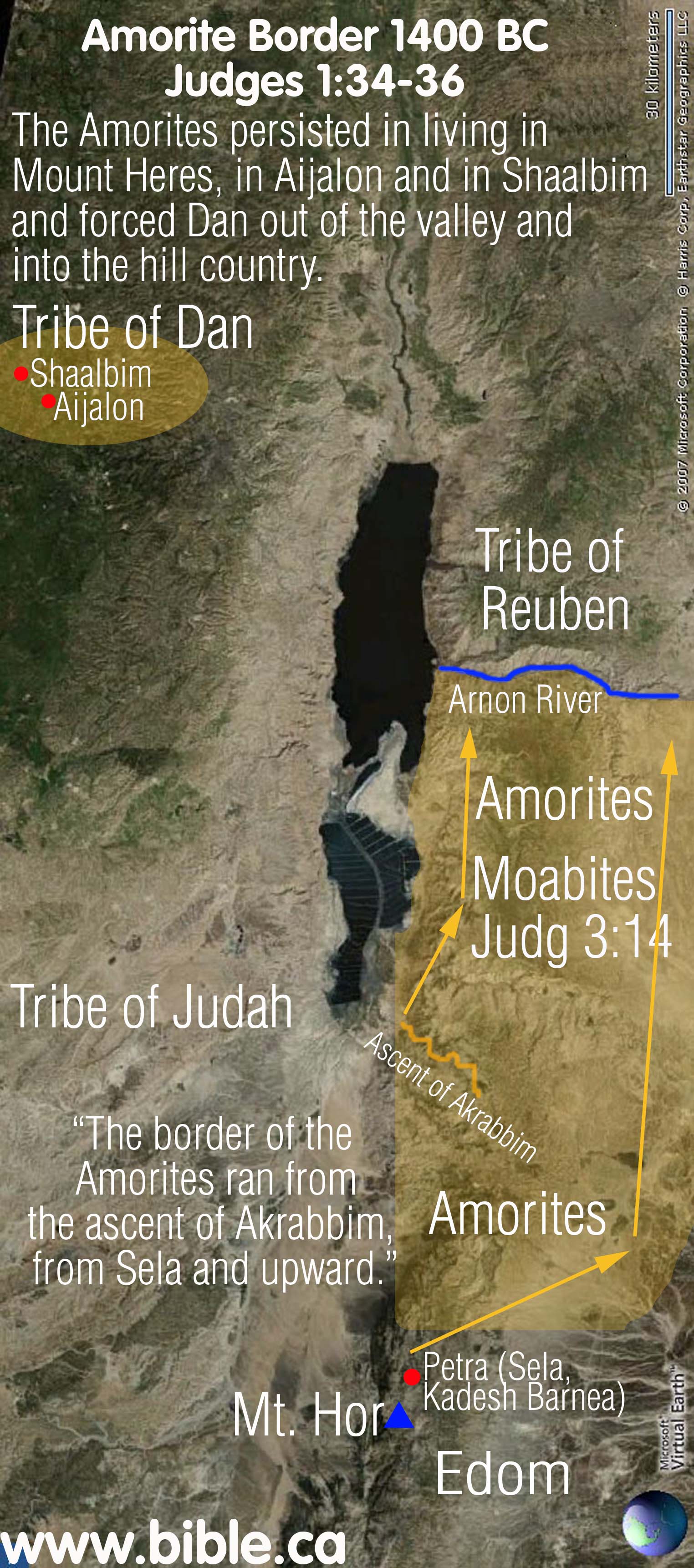|

|
- In 1406 BC, when the Israelites first came to the promised land, the Amorites controlled the transjordan from the Arnon River north to Mt. Hermon and many key cities west of the Jordan including Jerusalem and Hebron.
- As Israel had asked Edom to pass through, but was refused, so too they asked the Amorites so they could pass travelling west to cross their land and get to the Jordan River. Unlike Edom, this time Israel fought: "Then Israel sent messengers to Sihon, king of the Amorites, saying, "Let me pass through your land. We will not turn off into field or vineyard; we will not drink water from wells. We will go by the king's highway until we have passed through your border." But Sihon would not permit Israel to pass through his border. So Sihon gathered all his people and went out against Israel in the wilderness, and came to Jahaz and fought against Israel. Then Israel struck him with the edge of the sword, and took possession of his land from the Arnon to the Jabbok, as far as the sons of Ammon; for the border of the sons of Ammon was Jazer. Israel took all these cities and Israel lived in all the cities of the Amorites, in Heshbon, and in all her villages." Numbers 21:21-25
|